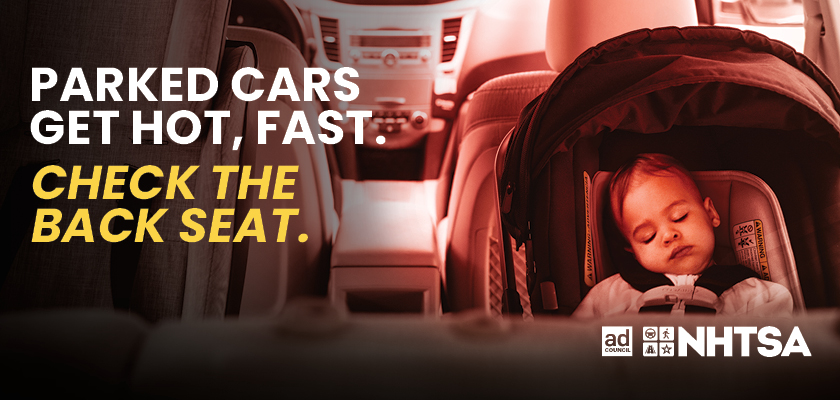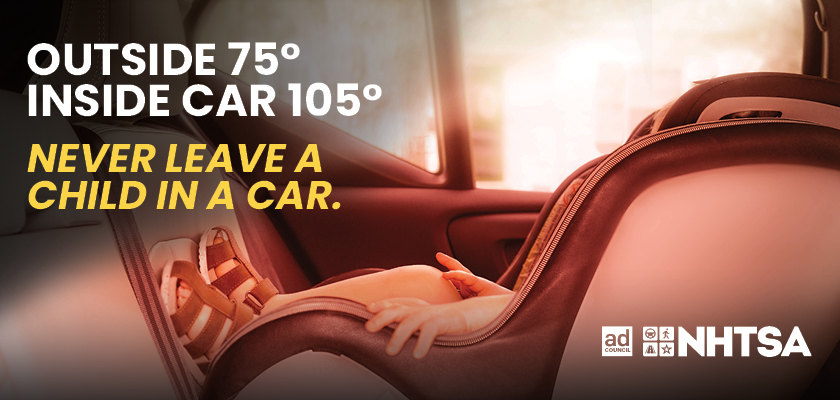Contributor Dr. Elise Herman
As summer approaches and the outdoor temperature increases, a danger looms for children- vehicular heatstroke (VHS), which is heat injury due to being in a hot car or other vehicle. These deaths are so preventable, and as a parent you may wonder how such a thing could happen, but vehicular heatstroke claims an average of 38 children’s lives a year in the US, with almost a thousand deaths since 1998.
Heat stroke is the most severe heat-related illness and occurs when the core body temperature is over 105.8 degrees Fahrenheit with signs of nervous system injury including confusion, seizures, and coma. Dehydration along with heat exposure can cause deadly heat stroke. Children are more at risk because they sweat less than adults and can overheat more quickly.
Vehicular heatstroke most often occurs when an adult ‘forgets’ a child in a car, often when the adult is on the way to work, intending to stop at childcare first. A change in routine such as a different parent doing the drop-off can also increase the risk. Parental stress or sleep deprivation can be contributing factors. Vehicular heat stroke can also occur if kids are playing in a car and accidentally lock themselves in.
The outside temperature does not need to be extremely high for vehicles to become dangerously hot. VHS has happened with outside temperatures as low as 57 degrees. A car can heat up 20 degrees in 10 minutes on a sunny day, and 72 degrees outside can become 117 degrees in a vehicle within 1 hour. Cracking the window or parking in the shade make little difference in term of the car heating up. Climate change also means more hot days and more extreme heat.
There are steps we can take to minimize the risk of this tragedy:
Resources
more about The contributor

Dr. Elise Herman
Dr. Herman is passionate about community health outreach, school programs, and child/family health and wellness. She has more than 31 years of experience as a pediatrician in Ellensburg, Washington, the last 3 with KVH Pediatrics. In 2022 Dr. Herman mostly retired from practice and continues to contribute blog posts and remain a visible advocate for kids in the community.

